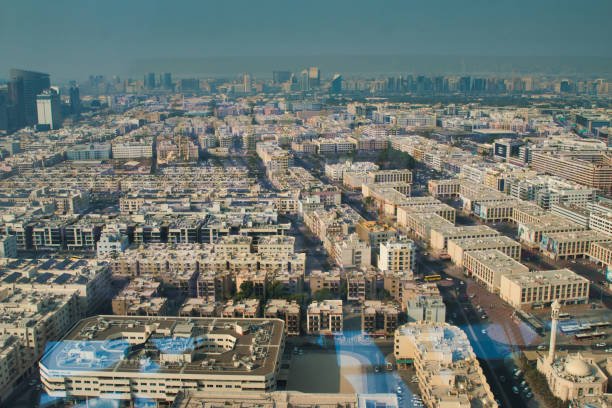Abu Dhabi, the capital of the United Arab Emirates (UAE), is rapidly becoming a global leader in smart city innovation. With ambitious initiatives such as Abu Dhabi Vision 2030 and Smart Abu Dhabi, the emirate is using cutting-edge technology, sustainability, and digital infrastructure to enhance quality of life, economic growth, and environmental resilience.

Key Pillars of Abu Dhabi’s Smart City Strategy
1. Digital Transformation and AI Integration
Abu Dhabi is embracing Artificial Intelligence (AI), Big Data, and IoT (Internet of Things) to optimize urban services. The Abu Dhabi Digital Authority (ADDA) leads initiatives such as:
- Smart Traffic Management – AI-powered systems reduce congestion and improve road safety.
- Digital Government Services – Platforms like Tamm provide seamless online access to over 600 government services.
- AI-Powered Healthcare – Predictive analytics and telemedicine enhance patient care.
2. Sustainable and Green Urban Development
Sustainability is at the core of Abu Dhabi’s smart city vision. Key projects include:
- Masdar City – A carbon-neutral smart city powered by renewable energy.
- Abu Dhabi Climate Initiative – Aiming for net-zero emissions by 2050.
- Smart Grid and Energy Efficiency – Advanced energy management systems optimize power consumption.
3. Smart Mobility and Transport
Abu Dhabi is investing in future transport solutions to reduce reliance on cars:
- Autonomous Vehicles (AVs) – Trials for self-driving taxis and buses are underway.
- Hyperloop and High-Speed Rail – Ultra-rapid transit plans to connect Abu Dhabi to Dubai and beyond.
- Electric Vehicle (EV) Infrastructure – Expanding charging stations to promote green transport.
4. Improved Public Safety and Security
Smart surveillance and predictive policing enhance safety:
- AI-Based Surveillance – Facial recognition and crowd monitoring improve safety.
- Emergency Response Systems – Drones and IoT sensors enable rapid disaster management.
5. Citizen-Centric Smart Living
Abu Dhabi prioritizes livability through smart solutions:
- Smart Homes and Buildings – Automated energy and security systems for residents.
- eHealth and Wearables – Remote health monitoring for better well-being.
- Digital Education and Smart Schools – AI-powered learning platforms for students.
Global Recognition and Rankings
Abu Dhabi’s efforts have garnered international acclaim. In 2023, the city was ranked the smartest in the Middle East and North Africa (MENA) region and 13th globally in the IMD Smart City Index. The ranking reflects the city’s achievements in infrastructure, digital services, and governance, underscoring its position as a leading smart city on the world stage.
Challenges and Future Outlook
While Abu Dhabi’s smart city vision is groundbreaking, challenges remain, including:
- Data Privacy and Cybersecurity Risks – Ensuring a secure digital infrastructure.
- High Implementation Costs – Balancing innovation with budget constraints.
- Public Adoption – Encouraging residents and businesses to embrace new technologies.
Despite these obstacles, Abu Dhabi is on track to become one of the most advanced smart cities in the world, setting a benchmark for urban innovation in the Middle East and beyond.
Abu Dhabi’s smart city vision is a bold combination of technology, sustainability, and human-centered design. By leveraging AI, renewable energy, and smart infrastructure, the emirate is creating a future-ready metropolis that enhances efficiency, safety, and quality of life. With these initiatives unfolding, Abu Dhabi is poised to redefine urban living in the 21st century.
